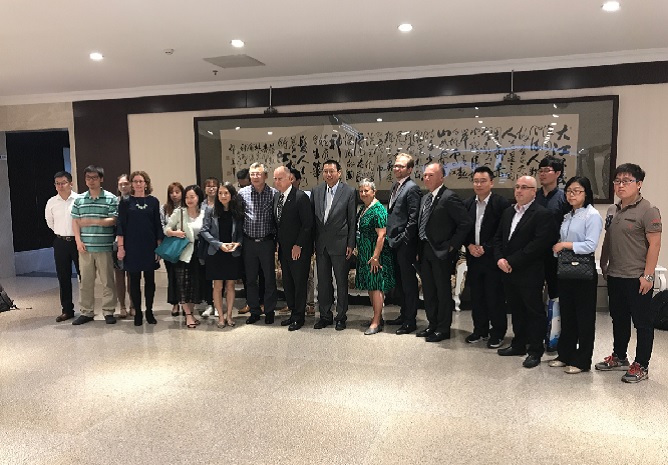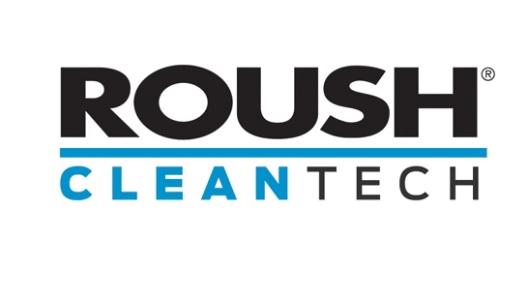 Things were looking good for startup automaker Zero Pollution Motors and its compressed-air powered car, AIRPod. Legendary pop music star Pat Boone and entrepreneur Ethan Tucker were able to impress investor Robert Herjavec enough on the ABC hit series “Shark Tank” to invest $5 million for a 50% share. Herjavec sweetened the deal by committing to get involved with creating an effective sales network in the U.S. Zero Pollution Motors needed the $5 million to set up an assembly plant in Hawaii to produce the city car capable of traveling up to 50 mph with an 80 mile range. They said it takes four minutes to fill up the air tank, and would only cost car buyers $10,000 for driving the cleanest car on U.S. roads.
Things were looking good for startup automaker Zero Pollution Motors and its compressed-air powered car, AIRPod. Legendary pop music star Pat Boone and entrepreneur Ethan Tucker were able to impress investor Robert Herjavec enough on the ABC hit series “Shark Tank” to invest $5 million for a 50% share. Herjavec sweetened the deal by committing to get involved with creating an effective sales network in the U.S. Zero Pollution Motors needed the $5 million to set up an assembly plant in Hawaii to produce the city car capable of traveling up to 50 mph with an 80 mile range. They said it takes four minutes to fill up the air tank, and would only cost car buyers $10,000 for driving the cleanest car on U.S. roads.
That story has changed. On Friday, the company posted this on its Facebook page: “Robert (Herjavec) backed out of the deal made last year after waiting 9 months. Now we are free to have other investors! Are you in?”
That episode of “Shark Tank” first aired in May 2015 and then was repeated on Friday evening. It seemed to be originally filmed in late 2014 or early 2015. So far, there haven’t been any media comments from Herjavec or the automaker beyond the Facebook posting.
This is a classic tale of what tends to happen in advanced vehicle technologies, especially by startup companies trying to make it as a vehicle manufacturer. Investors do pull away if they become concerned about what’s happening internally with management; they can also lose confidence visiting the production facility and looking at the financials. It’s an incredibly capital intensive business to make it in, and skilled, experienced personnel is a must.
Here are a few of my thoughts on what stands out with the Zero Pollution Motors experience:
- The potential of the car, and the presentation made on “Shark Tank,” were enough to impress Herjavec, who’s made some very sizable investments in new technologies. Herjavec has a lot of interest in cars; two years ago, he led Connected Car Expo’s FASTPITCH competition right before the start of the LA Auto Show. The fact that he walked away indicates there are some serious internal issues for the company and its owners to deal with.
- The company is making what I consider to be a big mistake: competing with other alternative technologies to take out Big Oil. Ethan Tucker made comments about compressed-air car AIRPod being superior to electric vehicles on “Shark Tank,” such as not needing the expensive lithium ion battery. The company’s Facebook page makes statements about the need to find freedom from fossil fuel addiction, the power of Big Oil, and the threat of environmental devastation. The real issue is that the company wants to brag that it has the best-of-the-best in alternative technologies. That’s been debated for years, with the latest hotspot coming from the electric vehicle vs. hydrogen fuel cell vehicle debate. The real challenge is getting consumers and fleets to overcome their concerns about owning a new technology, so that they will make that investment and spread the good word to their peers.
- Compressed-air cars are getting a lot of interest in global markets. Luxembourg-based Motor Development International (MDI), and its founder Guy Negre, have been behind AIRPod from its origination. MDI has been working with Tata Motors to build the car through Zero Pollution Motors in Hawaii, and then ship some of them back for sale in India.
- If you view the image in this article and on the website and Facebook page, you’ll see another significant development in transportation: supporting urban mobility. It’s a small, lightweight car with limited size and range. It’s targeted at consumers concerned about overdeveloped cities and air pollution. There’s hope that young consumers (Millennials) will embrace mobility options as they put off owning a car and move into cities.
- Advanced vehicle technologies inspire a lot of enthusiasm and interest out there, which is well represented by celebrity investor Pat Boone. He thinks it’s an answer for crowded cities with air pollution. One of the big challenges that I’ve noticed is getting them to stay interested and committed to supporting the technology. I’ve had many conversations with people fascinated with the potential, thinking about getting involved with the business or buying one of the cars. Most of them become interested in something else and forget about clean vehicles.
- What about the infrastructure? Compressors will need to be available at fueling stations. That will take a lot of investment and partnerships with fuel station owners.
- One of the big stumbling blocks for the company is getting through the NHTSA and EPA testing procedures. It’s been accepted in Europe but still has to clear with the federal agencies, which is not easy to do.
- Compressed air equipment is currently being used in various applications. Caterpillar and equipment rental companies like United Rentals have been using compressed air systems for years.
The odds are stacked against the round and futuristic AIRPod making it to roads, and compressed air-powered vehicles as a passenger vehicle. It’s a fascinating technology where the tanks with compressed air are heated and the air is sent into cylinders of a piston engine. The fueling will be fast and cheap, and the emissions might be as clean as the water coming out of fuel cell cars. The AIRPod may drop down to costing only $3,700 to build before it sells for $10,000. I hope AIRPod makes it, but it’s been sad to watch several companies with admirable technologies having to close their shutters.
 away from the Paris climate change accord. Governor Jerry Brown and California Air Resources Board chair Mary Nichols met with officials from China’s leading automakers and battery manufacturers this week in an effort to expand cooperation and accelerate deployment of zero-emission cars, trucks, and buses. A new working group was formed through the China-US ZEV Policy Lab at UC Davis to expand cooperation with Chinese vehicle and batter makers. The lab comes from a partnership established in 2014 between UC Davis Institute of Transportation Studies and the China Automotive Technology and Research Center. Brown and Nichols have been touring China this week as the nation prepares to adopt the state’s ZEV policy with credits for automakers to purchase and trade for meeting emissions rules.
away from the Paris climate change accord. Governor Jerry Brown and California Air Resources Board chair Mary Nichols met with officials from China’s leading automakers and battery manufacturers this week in an effort to expand cooperation and accelerate deployment of zero-emission cars, trucks, and buses. A new working group was formed through the China-US ZEV Policy Lab at UC Davis to expand cooperation with Chinese vehicle and batter makers. The lab comes from a partnership established in 2014 between UC Davis Institute of Transportation Studies and the China Automotive Technology and Research Center. Brown and Nichols have been touring China this week as the nation prepares to adopt the state’s ZEV policy with credits for automakers to purchase and trade for meeting emissions rules. certified to the optional low nitrogen oxide (NOx) level .05 g/bhp-hr. These new U.S. Environmental Protection Agency- and California Air Resources Board-certified propane engines are 75% cleaner than the current emissions standard. “Roush CleanTech’s low NOx engine is a great step forward for the propane industry,” said Tucker Perkins, president of the Propane Education & Research Council. “Propane autogas is well established as an economical, clean-burning and domestically produced alternative fuel ideal for fleets. Now propane gets the biggest return on NOx reductions, too.”
certified to the optional low nitrogen oxide (NOx) level .05 g/bhp-hr. These new U.S. Environmental Protection Agency- and California Air Resources Board-certified propane engines are 75% cleaner than the current emissions standard. “Roush CleanTech’s low NOx engine is a great step forward for the propane industry,” said Tucker Perkins, president of the Propane Education & Research Council. “Propane autogas is well established as an economical, clean-burning and domestically produced alternative fuel ideal for fleets. Now propane gets the biggest return on NOx reductions, too.”
